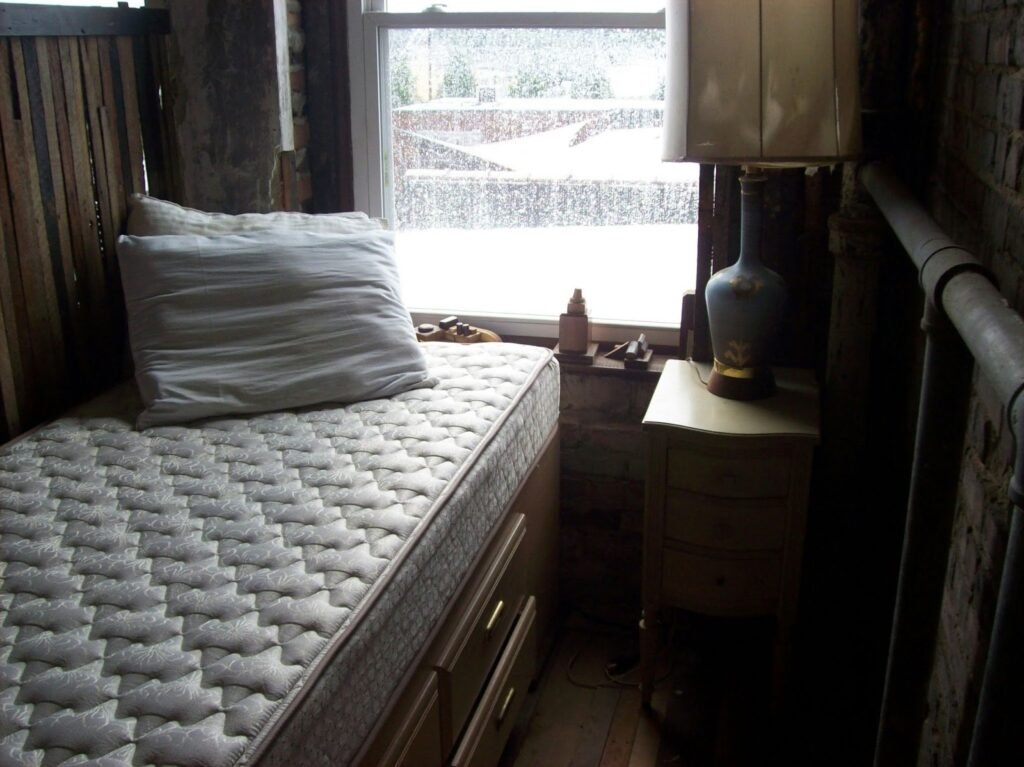Effective Solutions For Managing Incontinence With Protective Bedding

Incontinence, which affects bowel or bladder control, is probably one of the most severe issues in life quality. It is more widespread than you may imagine; research indicates that around 25 million adult Americans are struggling with some degree of incontinence.
The incidence of this condition increases with age; approximately 30% of elderly persons above 65 years have it. For many, it is accompanied by shame, unease, and withdrawal from society.
However, there remains a glimmer of hope at the end of this ordeal. You may be struggling with incontinence and can’t sleep without soiling your bed sheets. Yet, there are many scientifically corroborated ways to manage such conditions that could help you enjoy more peaceful nights while still maintaining some dignity.
1. Diaper Pads: Your First Line of Defense
As they are popularly known, diaper pads or adult diapers are the most common means for controlling incontinence. They provide an inconspicuous yet effective way to soak up any leakage, keeping you dry and comfortable both daytime and nighttime.

From the early days, disposable diaper pads have undergone many changes in their degree of absorbency and comfort levels. For example, Booster Pads can hold up to four times more moisture than ordinary ones while giving a user extra assurance for dryness. Therefore, when choosing diaper pads, it is necessary to consider absorbent capacity, size, design(such as micro tabs or pull-on), and the ability to hold odors or moisturize skin.
2. Waterproof Mattress Pads: Safeguarding Your Investment
It is essential for any human being to sleep correctly, but with incontinence, it becomes impossible for you to attain this serenity everyone needs. This is made possible by waterproof mattress pads as they are designed to create an impenetrable barrier between a person’s body and the mattress so that leaks do not damage the former, thereby ensuring its longevity. Typically, these mattresses allow free movement of air, but they also stay watertight.

When looking for a waterproof mattress pad, try selecting items that are hypoallergenic, noiseless on one side, and fit tightly to the bed at all times. Some even go beyond this by including extra features such as cooling technology or preventing the growth of bacteria. Remember, having a protected mattress is essential for good quality sleep without any worries.
3. Reusable Bed Pads: An Environment-Friendly Option
If you want durability at an affordable price, then go for reusable bed pads. Made from absorbent materials that can be cleaned and reused over again, they help minimize pollution while saving money in the long term.

Various factors influencing the selection of washable bed pads include absorbency capacity, length, width, textile type, and maintenance simplicity. Good ones should be able to handle being machine-washed and dried, as this simplifies their use. More so, some have a non-slip backing so they do not move about during sleep time.
4. Exercising the Bladder: Strengthening Your Pelvic Floor
Specific exercises for pelvic floor muscles, known as bladder control practices, help maintain a healthy urethra and bladder. These exercises can also reduce any dribbles or blowouts as they help with the management of bladder-related functions.

Kegel exercises may appear simple but are highly effective; besides that, they can be done anytime and anywhere without anyone noticing it is being done. However, these exercises need constant practice, so you can make it a point to do them several times in a day.
5. Lifestyle Changes: Your Health, Empowered
Certain lifestyle modifications can have considerable effects on bladder health and incontinence management. For instance, avoiding bladder irritants like caffeine and alcohol, practicing timed voiding; keeping an ideal weight can all help with better bladder control.

Managing underlying medical problems such as diabetes mellitus or constipation may also positively affect the functioning of the bladder. The diet should be modified by increasing fiber consumption and remaining hydrated to improve digestion and avoid associated constipation and urinary incontinence issues.
6. Medical Treatment: Expert Guidance for Optimal Care.
Consultation with a medical expert is necessary in case of chronic or sudden incontinence. A healthcare expert will conduct an elaborate appraisal aimed at discovering possible underlying conditions and the best alternatives for treating them.

Specifically, drugs, surgical interventions, or appliances such as pessaries can be used to manage conditions responsible for urine loss. Furthermore, biofeedback therapy and bladder re-training techniques may be taught for you to learn to improve your bladder control hence dealing with its symptoms efficiently.
Additional Tips for Managing Incontinence
- Communicate Better: If you have someone who trusts you and is near you, do not fear speaking about your incontinence problems to them, may they be friends, family members, or health professionals? Such a conversation creates an environment where there is sympathy and support hence simple navigation through difficulties and identification of suitable remedies.
- Support Groups: Joining a support group gives individuals access to emotional backing from people who’ve had similar battles in life among other practical guidance systems that handle similar issues. These organizations serve as platforms where one can voice their fears concerning the disease, learn from the experiences of others, and discover ways of dealing with urinary incontinence.
- Optimistic Perspective: You can overcome the hurdles posed by incontinence with a positive attitude and solutions at hand. Self-care methods and little victories should be celebrated, and it should be remembered that you are not alone on this path.
- Skin Care: Skin care is so important with incontinence. The skin may be irritated or destroyed indicating using mild soap and moisturizer to keep them intact. Incontinence product brands will have various products meant for proper skin care.
Conclusion
Although incontinence is hard, it doesn’t mean it has to lead you. Thus, you can handle this issue by employing working products like pads for bed wetting and going to the right doctor to become clean and understanding. Be aware of everything that may help increase this condition and take responsibility alone.

Your success in this journey is within your power, and you can do it by prioritizing open discussions, being hopeful, and making good use of what you have. Always remember that diaper pads are one of the best options available for an individual who wants to manage his or her condition; hence, they provide happiness and self-belief.

